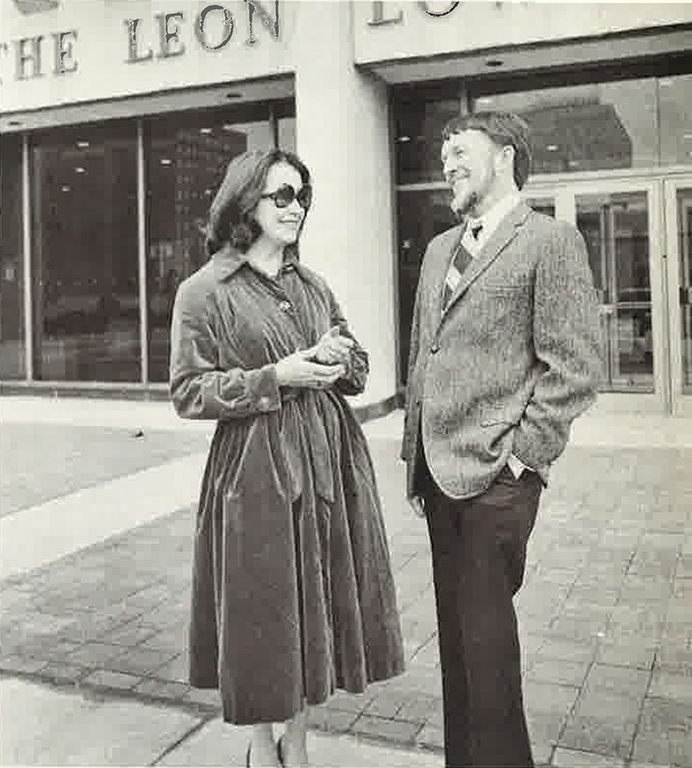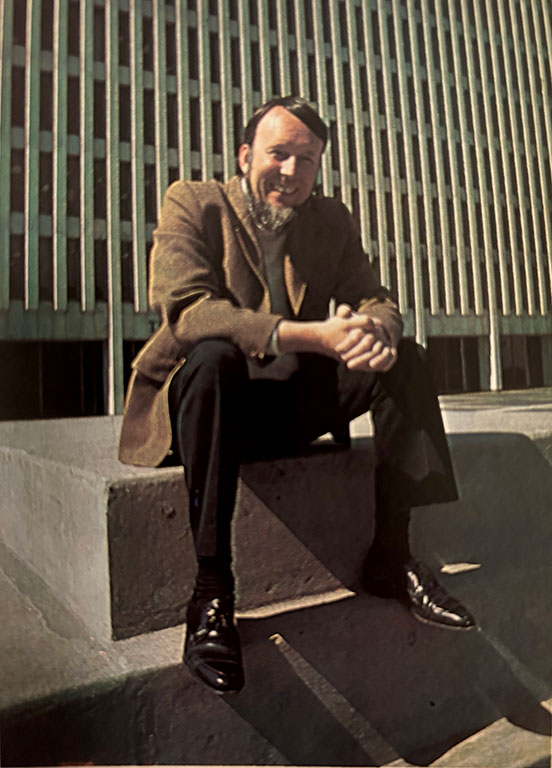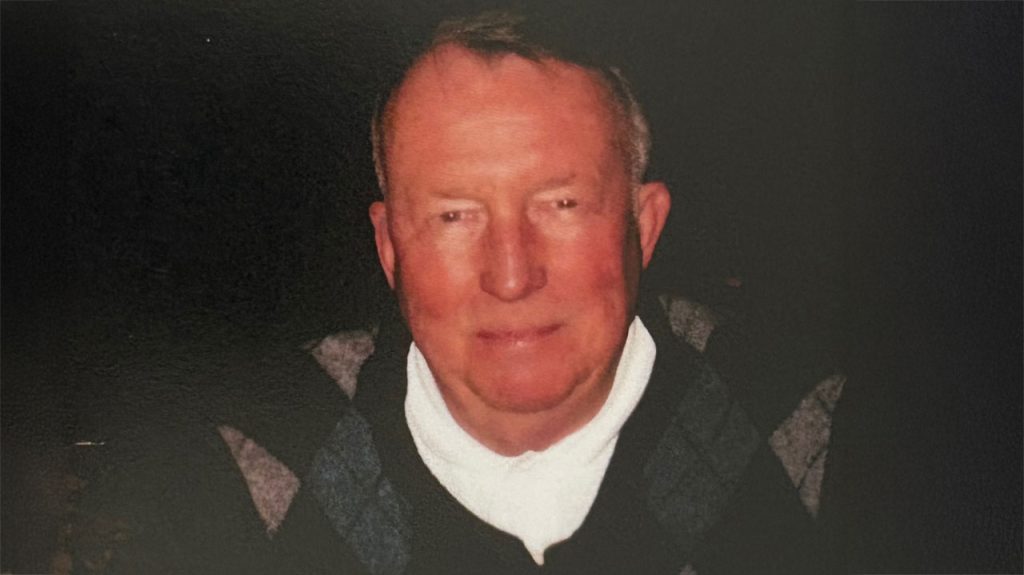George Shea, Ph.D., an innovative dean of undergraduate education who guided Fordham College at Lincoln Center through its early years, died on July 3 at his home in Manhattan. He was 90.
Shea joined the Fordham faculty in 1967 as a classics professor. But he was already a certified Ram, having graduated from Fordham College at Rose Hill in 1956 alongside classmate Alan Alda, with whom he studied in Europe.
“[W]e both spent our junior year abroad and soaked up as much of Paris and the rest of Europe as we could,” the actor said in an email. “I remember fondly when our car ran out of gas and we had to get out and push the car the rest of the way into Rome.” The two also served in the Army together, according to Shea’s son, George M. Shea, and later lived a block away from each other in Manhattan.
Almost immediately after Shea’s faculty appointment, he took on a more active and challenging role in the University’s future. In 1968, he was appointed assistant dean of Fordham College at Rose Hill, and in 1970, he was appointed academic dean and dean of faculty at the University’s undergraduate college in Manhattan, then known as the Liberal Arts College.
Located at the newly constructed Lincoln Center campus, the college had been founded just two years earlier. As such, Shea would go on to oversee the hiring of hundreds of new faculty members during his tenure.

Robert R. Grimes, S.J., who served as dean from 1997 to 2018, credited Shea with leading what is now known as Fordham College at Lincoln Center when it was still getting its footing.
“George managed to shepherd the undergraduate school at Lincoln Center through the tumultuous early years of its existence and developed it into an innovative, multigenerational college beloved by both its faculty and students,” said Father Grimes, who published a history of the college in 2018.
Shea stepped down as dean of the college in 1985, but stayed on as a member of the classics department until 2011, when he retired with the title of professor emeritus.
A love of lifelong learning was a key aspect of his time at Fordham. As dean, he championed the EXCEL program, a radical experiment in higher education at the time that was offered to working adults in the Liberal Arts College. He also oversaw the founding of Fordham’s College at 60 program, which currently serves a similar student body.
In 2011, the Haledon, New Jersey, native came out of “retirement” to join the College at 60 and teach classes on topics such as Dante’s Inferno. He continued to do so until last year. In an interview for a 2023 Fordham Now article celebrating the program’s 50th anniversary, he spoke fondly of the experience.

“I never could stand not teaching,” he said. “After coming back from a break because of COVID, I said to myself, ‘Can I still do it?’ But it’s like riding a bicycle. I got back in the classroom, and it just took off.”
Shea was a published author, having penned three books on the Roman poets Corippus, Alcimus Avitus, and Tibullus, as well as a family memoir titled Spoiled Silk (Fordham University Press, 2001).
Shea’s son, a graduate of Fordham College at Lincoln Center and Fordham Law, called his father an “amazing, multi-talented man,” whom he was fortunate to learn from as a student in his Latin class for two years.
“As a husband, father, teacher, author, artist, and friend, he was an absolute and constant inspiration. For me and my sisters, he opened up the world and fed our imaginations,” he said.
Shea is predeceased by his wife of 56 years, Shirley Ashton, who died in 2012, and his eldest daughter, Sarah Kadaras, who died in December. He is survived by his daughter Susan Shea-Klot; his son, George M. Shea; seven grandchildren; and two great-grandchildren.
Read more about George Shea in the family obit.

